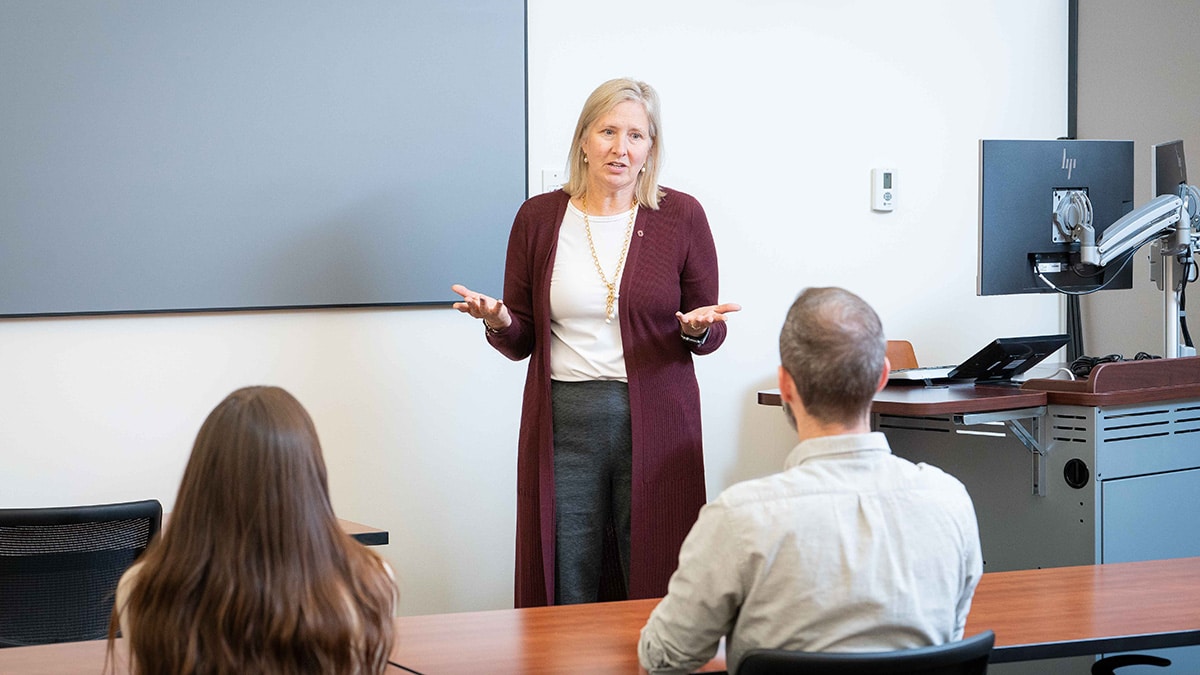Making the Most of Mealtime: Eating, Swallowing & Dignified Dining for Individuals with Dementia & IDD
By Elizabeth KinzigMay 23, 2022
You may be interested in:

Articles
4 Tips for Getting the Most Out of Mealtime with Dementia
Over time, people develop unique relationships with food – determining what they like and do not like. It is commonplace to have a favorite meal, type of food, place to eat, etc. Individuals living with dementia, however, commonly experience changes from their normal food habits. Depending on the person and what stage of dementia they are in, a loved one may show changes in things like appetite, eating habits, food preferences or swallowing ability.

Videos
End-of-Life Decisions for Individuals with IDD and Dementia
This webinar, led by the Hospice of the Western Reserve, assists caregivers in identifying the value of and barriers to recognizing end-of-life in older adults and individuals with Intellectual and Developmental Disabilities (IDD) and dementia. It also emphasizes the importance of Advanced Care Planning for caregivers, and provides tips for healthcare professionals to aid in end-of-life discussions.

Articles
Recognizing the Symptoms of Dementia with IDD
Diagnosing dementia is rarely straightforward, but can be even more challenging for those in the Intellectual and Developmental Disabilities (IDD) community. Many of the most common symptoms of dementia such as language challenges and difficulty with coordination are often things people with IDD already struggle with. This can make it all the more difficult to separate symptoms of dementia from their pre-existing symptoms.

Videos
Maximizing the Environment for Individuals with Dementia
According to the AARP, most Americans would prefer to stay in their homes until the end of their life. This statistic is no different for persons with dementia. Lack of safety and accessibility in the home are issues that need to be addressed so that individuals with dementia and their respective caregivers also have the ability to age in place. Occupational therapy professionals are trained health care providers that can provide formalized home safety assessments and recommend home modifications to increase safety and independence in the home. These efforts are also beneficial for community and business owners to consider and employ to further support individuals with dementia in the community.

Articles
Eating Well With Alzheimer's
Eating well is essential to good health, but when we are caring for an older loved one with a memory disorder, it may be challenging to be sure they have access to well-balanced and appetizing meals. It can be a struggle as well to ensure that they are eating these meals when they may be experiencing a loss of appetite or difficulty remembering and sticking to established routines as the illness progresses. As caregivers, it’s important for us to rise to these challenges and find solutions to prioritize nutrition and healthy eating in a loved one’s life as key element of maintaining their overall health.

Articles
Access to Resources in Ohio for Individuals Living With Dementia and Their Caregivers
Since 2022, Benjamin Rose Institute on Aging has partnered with Ohio State University, the Ohio Department of Aging, and several other aging organizations throughout the state to develop critical resources for individuals living with dementia and their family and friend caregivers. This partnership has led to the creation of Ohio’s first Alzheimer’s Disease and Other Dementias Statewide Resource Program, offering both virtual and in-person access to training, resources, and research on dementia and dementia care.

Videos
Caring for Individuals with Intellectual and Developmental Disabilities and Dementia
This webinar will overview common signs and symptoms of Alzheimer’s Disease and related dementias in individuals with intellectual and developmental disabilities, available cognitive assessments, medical and community-based resources, and provide information about a free evidence-based care-coaching program, BRI Care Consultation™, for family and friend caregivers or supporters.

Articles
Communication Aids to Support People with Dementia and IDD
One of the biggest challenges facing caregivers and loved ones of someone with moderate to severe dementia and/or intellectual and developmental disabilities (IDD) is communication. Both conditions can affect a person’s ability to understand what is being said and to respond in a clear, appropriate and easy-to-understand way. Because communication can become so challenging, many caregivers and loved ones make the mistake of getting visibly frustrated, avoiding communication as much as possible and even speaking as if the person with dementia and IDD isn’t in the room and by nature can’t understand anything being said.







